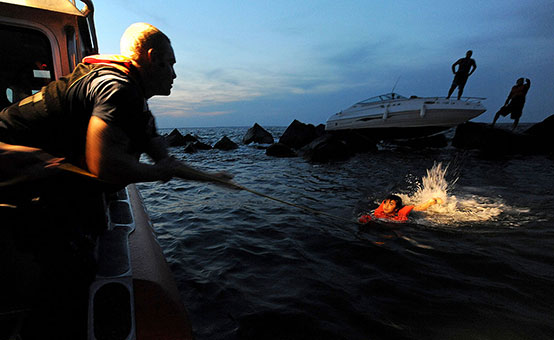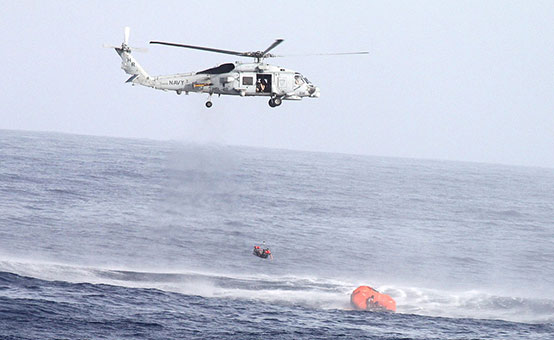Boating under the influence (or BUI) can turn a great day on the water into the tragedy of a lifetime, because alcohol and drugs can seriously affect safe boat operations.
In this video from America's Boating Channel, you'll learn:
Fatalities resulted from nearly 4 out of 10 recent boating accidents in the United States where alcohol use was a contributing factor, increasing to almost 8 out of 10 resulting in injury. In boating deaths involving alcohol use, over half the victims capsized their boats or fell overboard.
Boaters are likely to become impaired -- drink for drink -- more quickly than automobile drivers. Boater's fatigue from environmental stressors compounds the issue. Environmental stressors include things like heat, sun, noise, wind, glare, and the continuous motion of a boat on the water for a long period of time.
Alcohol is dangerous for your passengers, too. Intoxication can cause slips, falls overboard, and other dangerous (and expensive) accidents.
And when boaters or their passengers drink, inner ear disturbances can make it impossible for a person who falls overboard to distinguish up from down.
BUI is illegal in every state and under federal law. These laws cover all boats, from the smallest paddleboards to the largest yachts. BUI regulations exist to prevent and minimize the possibility that an intoxicated person will operate a vessel on the water, and to reduce the threat of harm to oneself and others.
Criminal and civil laws are used to discourage operating a watercraft while under the influence of alcohol or drugs, whether legal or not. The federal BAC legal limit for boating under the influence is .08. Penalties vary by state but they can include fines, jail, impoundment of your boat, and loss of your boating and, in some states, driving privileges.
Federal and state authorities can pull over the operator of a boat just as law enforcement agents can pull over an automobile driver on suspicion of drunk driving; and penalties for BUI are at least as severe as for DUI. Being charged with BUI also can have other serious financial consequences including increased boater and auto insurance rates.
The U.S. Coast Guard and all states fully cooperate in enforcement to remove impaired boat operators from the waters.
Operation Dry Water (ODW), a joint effort between the National Association of State Boating Law Administrators (NASBLA) and the United States Coast Guard, reports that although the number of alcohol-related boating fatalities has decreased in the United States since 2009, alcohol continues to be the leading known contributing factor in recreational boating deaths. ODW is a year-round boating under the influence awareness and enforcement campaign designed to reduce the number of alcohol- and drug-related accidents and fatalities. Each year, ODW and its partners in law enforcement and the boating safety community conduct a three-day "heightened awareness and enforcement weekend" around July fourth — a holiday known for drinking and boating and deadly accidents. This year's nationwide enforcement weekend will take place from July 5th through July 7th.
The best advice? Skip the alcohol altogether while boating. It really is the safest way to enjoy your time on the water.
MORE FROM
SAFE PASSAGE

BOATING SAFETY | May 17, 2019
Top 4 Causes of Boating Accidents and How to Prevent Them

BOATING SAFETY | Jan 23, 2019
Rescue at Sea: 20 Things You Can Do Right Now To Be Better Prepared